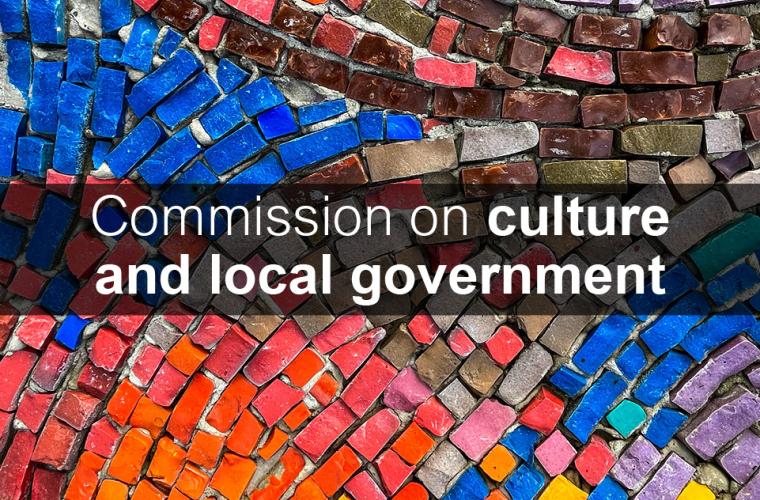The Commission on Culture and Local Government, launched by the LGA in March, is calling for councils and their local cultural partners to share examples of their work in using culture to support recovery and levelling up.

The independent commission, chaired by Baroness Lola Young, is exploring the role local culture can play in supporting recovery from the pandemic. It runs until December 2022 and will culminate in the publication of a report outlining its findings and recommendations to shape and support the work of national and local policy makers, funders and practitioners.
A programme of stakeholder engagement events and a series of roundtable discussions are underway, and the LGA is also interested to hear from organisations whose work addresses the four themes of the commission: sustainable and inclusive economic recovery; health inequalities; social mobility, cultural education and creative skills; and place.
Cllr Peter Golds, Vice-Chair of the Local Government Association’s Culture, Tourism and Sport Board, and Board Representative on the Commission on Culture and Local Government, said:
“The commission is in full swing, and discussions so far have been incredibly insightful and thought-provoking.
“To gain better understanding of how councils and partners are looking to culture to support recovery from the pandemic and levelling up ambitions, we’re now asking for examples that can help shape future work in this area.
“The role of culture moving forward cannot be overstated, and we are excited to hear some of the exciting ways we’re already seeing it in action.”
Example case studies
- As Liverpool City Council’s cultural service, Culture Liverpool launched a unique events programme designed to re-introduce culture into the lives of residents who were classed as extremely clinically vulnerable and shielding to reduce social isolation and loneliness, promote improved well-being, and empower residents most adversely impacted by the Covid-19 pandemic.
- Kent County Council has ensured culture runs through all their local strategies and plans for recovery as a ‘golden thread’. They have published a new strategic statement in which cultural opportunity is identified as a driver for good growth and and to generate pride, identity and creativity in local communities. With their broader work on the Creative Estuary programme and engagement with partners including the Backstage Centre in Purfleet, they have recognised the significant role the creative industries can play in supporting a thriving economic future for the region.
Notes to editors
Case studies should be submitted using our case study template.
Case studies should be emailed to [email protected] by 29 July.
More information can be found on the commission’s website.
